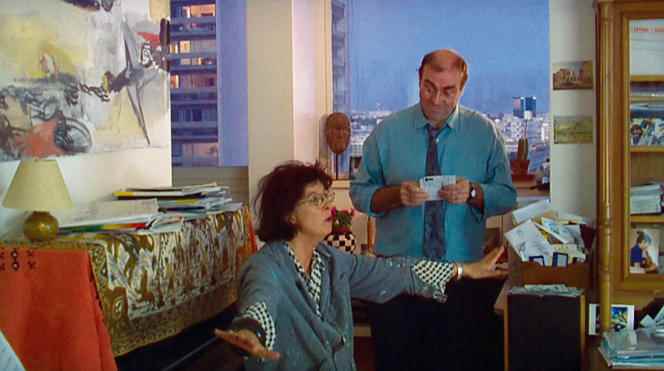Time works in favor of the works. Marie-Claude Treilhou, filmmaker, knows something about it, she whose first film, Simone Barbès or virtue (1980), a night in the company of a porn cinema usher from Montparnasse, ignored when it was released, now enjoys cult status, and is even considered an authentic masterpiece. Closer to Us, released just twenty years ago (during the 2002 Christmas holidays), A little case of conscience was not in its day more warmly welcomed, including by fans of simone who have not found the cult aura and nocturnal thrill of their model there.
Taking stock of the militant generation of the 1970s at the turn of the 21e century, the film too quickly passed under the radar, considered minor because of its craftsmanship. Its reappearance as a restored copy allows us to see, once again, how much time has worked for it. In twenty years, in fact, our perceptions have changed, the cinema has swung to the digital side and towards a considerable pool of authors (Hong Sang-soo, Alain Cavalier, Pedro Costa, etc.) in the maquis of a arte povera decreasing, which Marie-Claude Treilhou perfectly anticipated.
Rest, A little case of conscience gives up nothing on the sureness of the gesture, the acuity of the gaze, the carving of the staging. There is in him an art of character La Bruyère way, of philosophical dialogue in the manner of Diderot, a poetics of moralism (and not of moralism) in the illustrious line of Chamfort or Vauvenargues. The film is one of those in which speech is the main object, the center of everything, at the same time as it hides the essential, of which the spectator is invited to find the trace, between the words, in the friction of the discourses.
Greed for words
It all starts with a minor news item – the “little case” of the title – which will sow discord between four old friends on the threshold of fifty. Two of them, Simone (Ingrid Bourgoin, the unforgettable interpreter of Simone Barbes) and Hélène (Dominique Cabrera), who form a couple, discover their country house broken into. The event produces a wave of comments as far as Paris, where the two remaining friends, Sophie (Claire Simon) and Margot (Marie-Claude Treilhou herself), put to the juice, lose themselves in conjecture.
Marie-Claude Treilhou surrounds herself with accomplices filmmakers, out of competition of real actors
The latter, housed with husband (André Van In) and children in a tower of 13e district, stung, gets carried away, probably feeling guilty for having moved away from the cars (and sexually normalized). With the guesswork machine engaged, suspicion soon fell on the three workers who refurbished the house, one of whom, Mario (Alain Guiraudie) has since turned to pottery. But what is this reflex that leads these old branches, ex-activists, to participate, even unconsciously, in a questioning of the proletariat? Wouldn’t that be called gentrification?
You have 42.52% of this article left to read. The following is for subscribers only.
